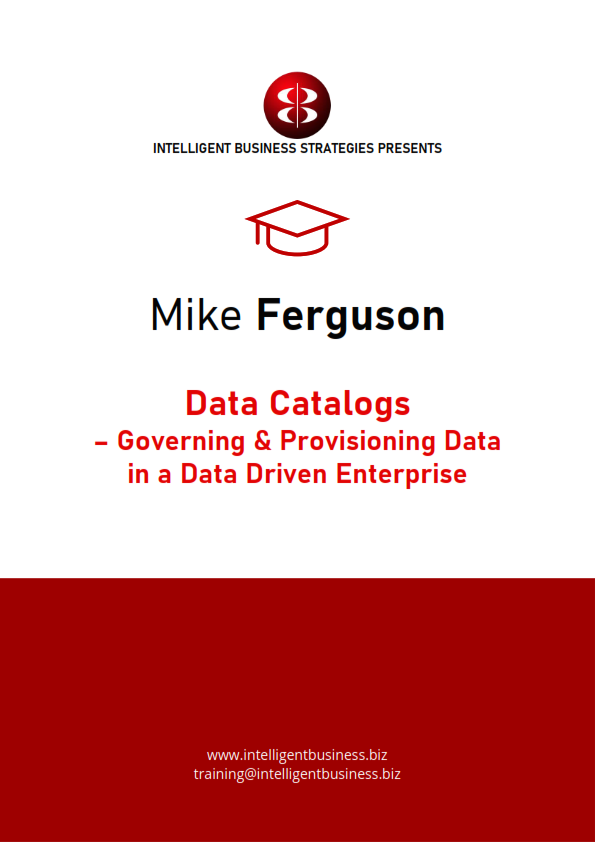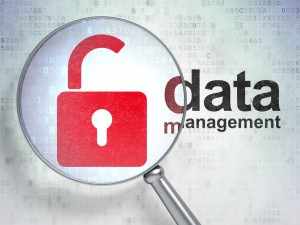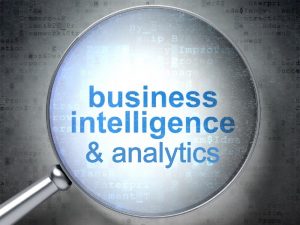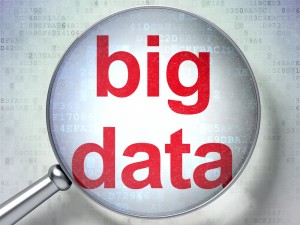
Featured Content

Data Catalogs – Governing & Provisioning Data in a Data Driven Enterprise (16 October 2024, Stockholm)

Data Catalogs: Governing & Provisioning Data in a Data Driven Enterprise (12 December 2024, Italy Livestream Training)

Data Warehouse Automation & Real-time Data – Reducing Time to Value in a Distributed Analytical Environment

Smart Infrastructure & Smart Applications for the Smart Business – Infrastructure & Application Performance Monitoring
Education
Data Catalogs – Governing & Provisioning Data in a Data Driven Enterprise

Request information on running this seminar as an Onsite (can be given as live streaming training)
Click here for the full brochure
DATES
Wednesday 16 October, 2024 – Stockholm (Agent: Quest for Knowledge)
Thrusday 12 December, 2024 – Live Streaming Training (Technology Transfer Institute)
OVERVIEW
This one-day class looks in detail at what a data catalog is and what the main reasons are for needing one. In particular we will look at the challenge companies are dealing with in respect to data complexity and the need to implement both an enterprise data governance program and provide technologies to help people find, engineer, provision and consume ‘business ready’ data for both analytical and operational use cases.
AUDIENCE
This seminar is intended for business and IT professionals responsible for data engineering, data provisioning and enterprise data governance including data access security, data privacy, data sharing, data usage, data retention, data quality of both structured data and content. This includes Chief Data Officers, Citizen and professional IT Data Engineers, Data Architects, Data Scientists, Heads of Data Governance, Data Stewards, Solution Architects and Enterprise Architects. It assumes a basic understanding of data governance, data management, metadata, data warehousing, data cleansing, data integration, etc.
LEARNING OBJECTIVES
Attendees will learn how data catalogs work and what their capabilities are. They will also learn how to use data catalogs to discover, classify and catalog data in multiple data stores both on premises, across multiple clouds, and at the edge. For people involved in data governance, they will learn how to use data catalogs in an enterprise data governance program to systematically classify data and set policies to govern classified data and content across their distributed data estate from a single place. This includes automatic discovery and classification of sensitive data, governance of data access security, data privacy, data loss prevention, data sharing, data usage, data retention, and data quality. Also, data engineers and data scientists will learn how to use data catalogs to discover data they can engineer in data integration pipelines to produce data products that can be published in a data marketplace.
MODULES
- Module 1: Introduction
- Module 2: What is a data catalog and why have one?
- Module 3: Data catalog capabilities: The importance of a business glossary
- Module 4: Data catalog capabilities: Understanding your data landscape using auto data discovery, cataloguing and mapping to a business glossary
- Module 5: Data catalog capabilities: Classifying data and content to know how to govern it
- Module 6: Data catalog use case: What’s need to govern data across a distributed data landscape
- Module 7: Data catalog use case: Finding, engineering and provisioning data





